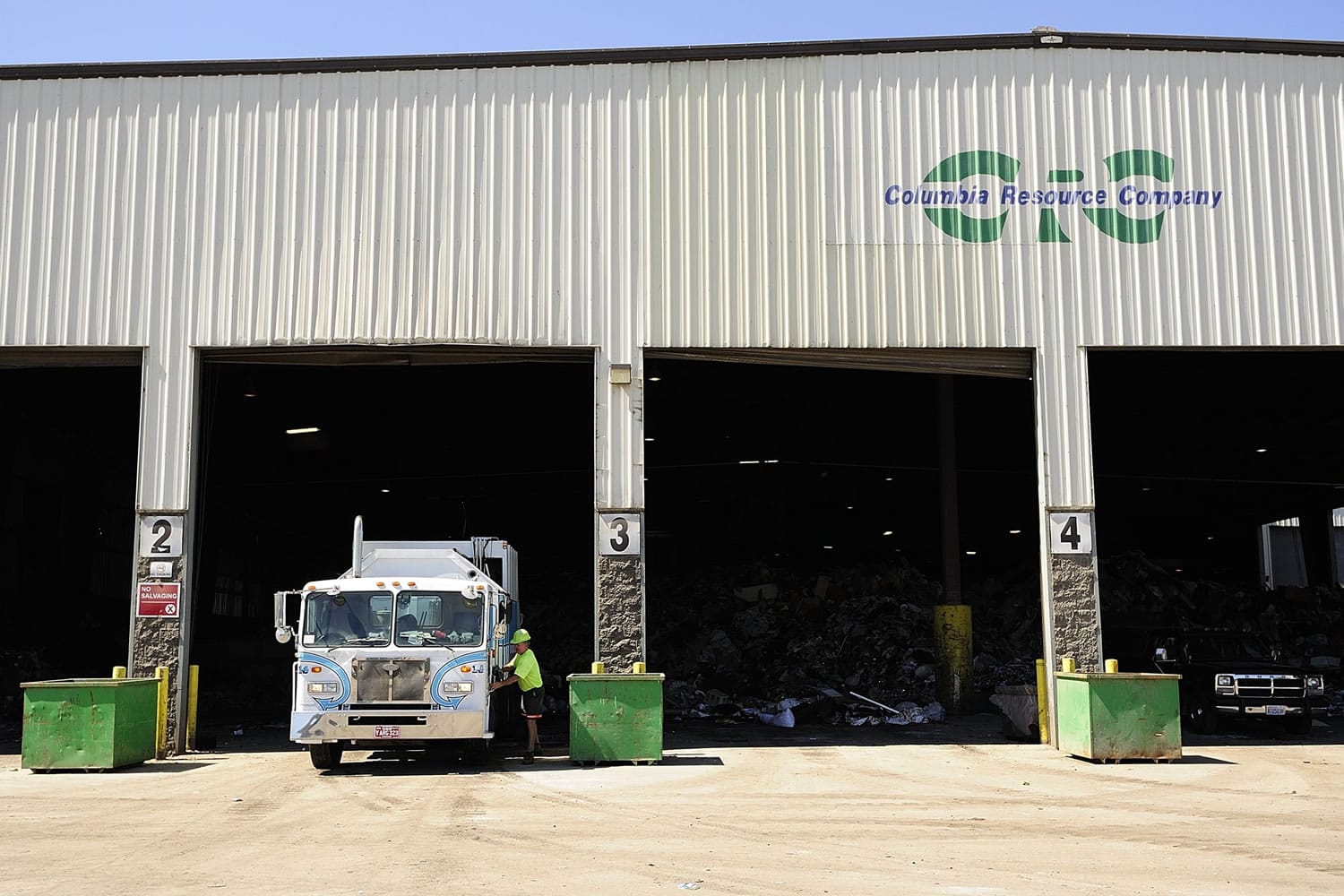Vancouver Public Works is proposing raising the rates of every utility the city provides next year to keep up with inflation and help pay for maintenance and capital projects.
If approved, the average homeowner’s bill would go up $3.46 a month, from $80.54 to $84, Public Works Director Brian Carlson told the city council Monday.
The Vancouver City Council is considering a number of utility rate increases for 2012. A public hearing and vote on all the rates except the sewer utility is set for Dec. 19.
o Sewer: 9 percent increase (approved in 2010).
o Water: 5 percent increase.
o Surface water: 2.1 percent increase.
o Solid waste: 1.5 percent increase.
Impact to your bill: Average home customer would see a $3.46 a month increase for all above utilities, or an increase from $80.54 to $84 a month.
The Vancouver City Council is considering a number of utility rate increases for 2012. A public hearing and vote on all the rates except the sewer utility is set for Dec. 19.
o Sewer: 9 percent increase (approved in 2010).
o Water: 5 percent increase.
o Surface water: 2.1 percent increase.
o Solid waste: 1.5 percent increase.
Impact to your bill: Average home customer would see a $3.46 a month increase for all above utilities, or an increase from $80.54 to $84 a month.
If the city council approves the rate increases following a public hearing on Dec. 19, water rates would rise 5 percent; surface water 2.1 percent; and solid waste 1.5 percent. In 2010, the city council approved a 9 percent increase in sewer rates next year, along with a 6.5 percent increase this year.
The increases include 2.1 percent for inflation; anything over that amount will help pay for capital projects, Carlson said. Public works is moving to a pay-as-you-go system for capital projects, taking on debt only when necessary, he said — these increases put the city on the path of being
able to maintain aging infrastructure and expand the system. Getting behind on maintenance work costs much more later when problems become severe, he said.
“Other cities are facing big hefty bills because of lack of maintenance,” Carlson said. “It’s a pay me now or pay me later thing — but if you pay me later you’re going to pay a lot more.”
Mayor Tim Leavitt said that in that light, the increases make “prudent fiscal sense.”
Councilor Jeanne Stewart said the issue of making money available to pay for depreciating pipes and facilities is a fairly recent issue for public agencies.
“The need to do that, we’re all becoming more and more aware of it,” Stewart said. “It’s something that all cities … are coping with.”
The city expects to spend $150 million on water projects — including major renovations to the west-side water station, Vancouver’s largest and built in the 1930s — and $94 million in sewer work over the next 20 years. New state regulations could mean more costs to the surface water program as well, Carlson said.
Further increases will be discussed next year as the city council prepares its 2013-2014 biennial budget, Carlson said. Water rates will need to go up another 5 percent in the next few years to keep up with $150 million in planned capital work over the next 20 years, he said. But the move keeps in line with the city council’s desire to increase rates incrementally and often, rather than have large “catch-up” increases less frequently, he said.
In 2009, the city council raised utility rates 9 percent, including a 3 percent hike for inflation and 6 percent to the utility tax, which now stands at 20 percent. Before that, water rates weren’t touched since 1998. Sewer rates went up in 2007; surface water in 2006.
“We’ve had pretty flat water rates over the last 13, 14 years,” Carlson said. “We’ve been fortunate we have been able to do that, but now is the time we’ve got to come back and look at some increases.”
The rate increases would also tangentially put money into Vancouver’s ailing general fund. Some of the 20 percent utility tax — collected on gross receipts — goes to the city’s general fund, which pays for police, fire, parks and other general services. City Chief Financial Officer Lloyd Tyler said Monday afternoon he did not have information available on how much the general fund would benefit from the increased revenue.
With the increases, city staff said Vancouver’s rates still hover on the low end of the scale when compared with other regional cities’ rates.



